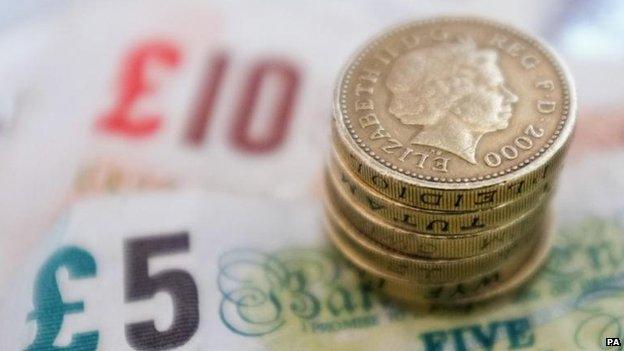Beyond GDP: Well-being
- Published

The holidays are a good time to reflect on well-being. The ONS has done so, releasing alongside its latest GDP estimate an assessment of income that is intended to provide a more comprehensive picture of economic prosperity.
It's a theme that I'll be exploring in the new year as I prepare for an Analysis programme on Radio 4 on this topic.
Firstly, is it more informative than GDP alone?
It seems so. GDP told us that the economy is growing well at 0.7% in the third quarter of 2014. But revisions to previous quarters meant that, on an annual basis, the economy is expanding more slowly than previously estimated at 2.6% instead of 3%.
GDP per head told us rather more. GDP per capita grew by 0.6%, so more slowly than the economy as a whole.
Whereas GDP has recovered to pre-economic downturn levels and the services sector is now 7.2% above its pre-crisis peak (though not the other sectors such as manufacturing), GDP per head is still 1.8% below what it was before the crisis. Worse, net national disposable income (that's a mouthful), or the income of UK residents, has remained flat for nearly three years and remains 5.6% below pre-crisis levels.
Taken together, it's unsurprising that median incomes - that's the income of the middle person and not the average of all of the people - fell to £23,300 in 2012-13, which is the lowest in a decade.
In addition, inequality has increased. The distribution of wealth has gone more to owners of capital than households.
The net wealth of the UK economy grew by 4.4% last year to £7.6 trillion. However, household wealth rose by less than that, increasing by 2.6% - mainly because of increases in house prices.
Meanwhile, the net wealth of financial corporations has skyrocketed by 373% to £421bn in the past year, external.
The increase in the value of financial assets, eg shares and deposits, is not solely a British phenomenon as cheap money has propelled stock indexes in the US to multiple highs in the past year. But, it's worrying that the increased wealth exacerbates inequality and hasn't found its way into the real economy. The wealth of non-financial corporations decreased in 2013.
It's no wonder that even though the economy is improving and household incomes per head (adjusted for inflation) are now slightly above their pre-recession levels, the ONS finds that households feel that their financial situation has worsened slightly over the past year. It's worth remembering that how confident households are about the future affects their consumption and saving decisions, which are crucial to how an economy grows.
So, it seems that incomes rather than GDP alone reveal more about our economic well-being. And six years on from the global financial crisis, even though the economy has recovered, there is still some way to go before our well-being does.